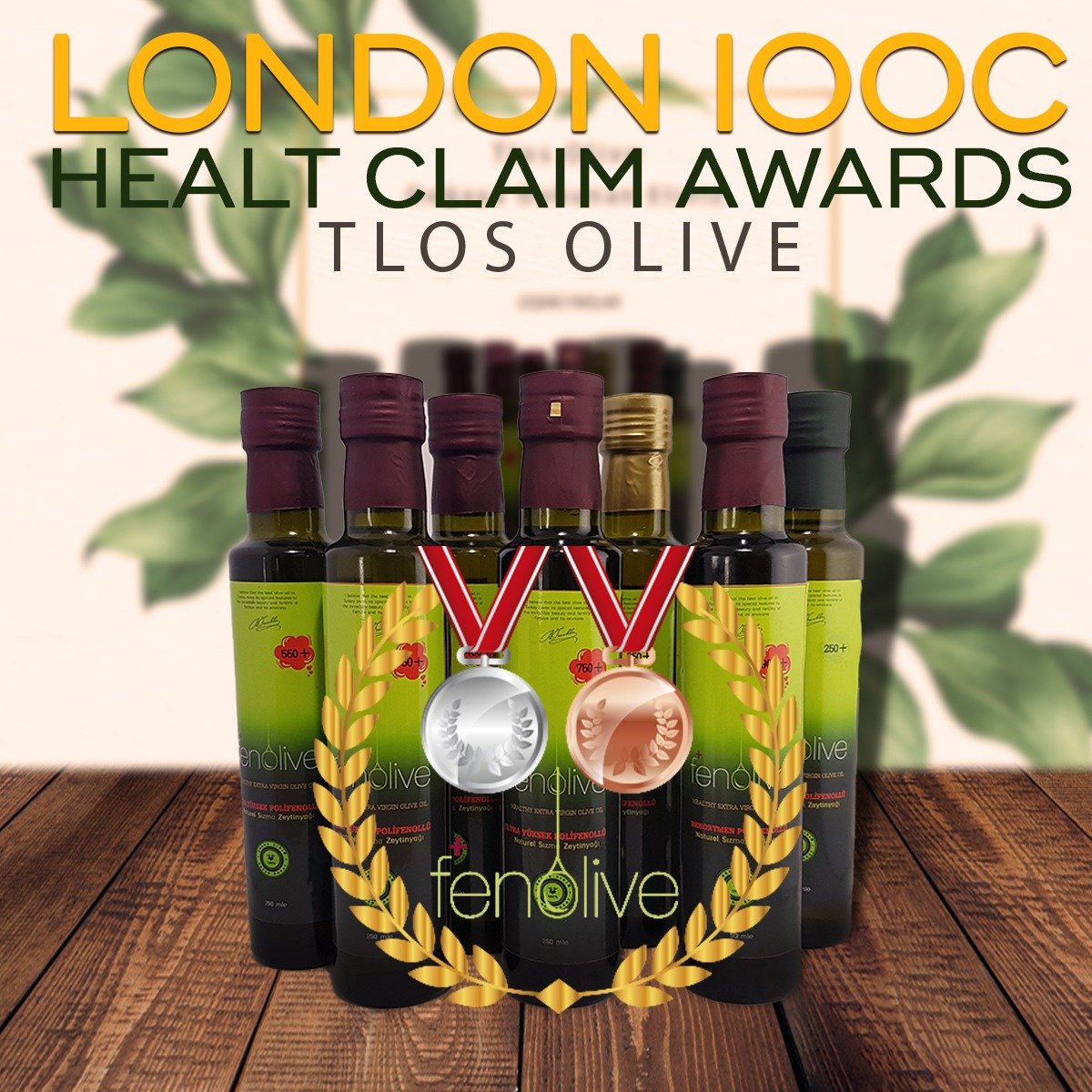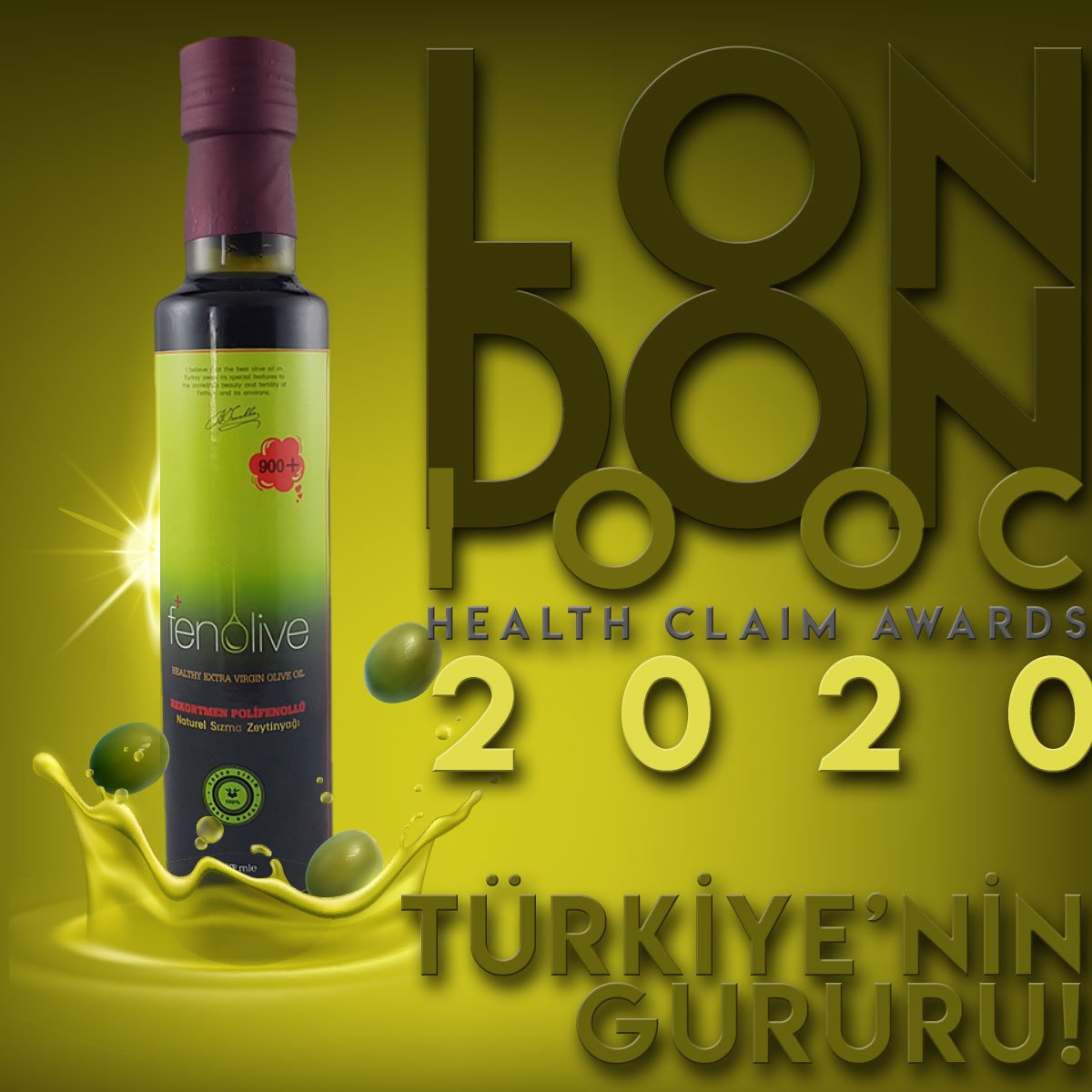End Reflux !!!

Since you are reading this article, your reflux is probably bothering you.
In this article, we tried to collect the benefits of olive oil in reflux for you. The first part contains useful information that you can also find on the Internet. If you want more academic studies, you can refer to the "National Center for Biotechnology Information" or "Journal of Agricultural an Food Chemisty" (you can find the link of both under the heading "Olive Oil Miracle" on our page). Their content is in English. Unfortunately, there is very little research in Turkish. We talked about the phenolic components mentioned in these articles and we told you where you can find the oil in this content. These phenolic compounds are not enough in every olive oil. Therefore, it is normal for you to say that you drank the olive oil at home and nothing happens. We explained the reasons. The polyphenol level in it is documented by international laboratories . We gave information. I hope it will be useful for you as it has for many people. We wish you a healthy day.
YOUR REFLECT AND OUR HIGH POLYPHENOL OLIVE OIL (PHENOLIVE)
Many people confuse reflux and gastritis with each other. However, reflux and gastritis are separate disorders, and sometimes a person may encounter both of these diseases. Gastritis is an inflammation of the stomach or duodenum caused by an increase in stomach acidity and a decrease in the factors that protect the stomach from acid. Reflux is the pathological reflux of stomach contents (acid) from the stomach to the esophagus (oesophagus). Among the symptoms of gastritis, stomach pain, nausea or vomiting, headache, loss of appetite, sudden fever, dizziness, white rust on the tongue, fatigue are seen, while burning that spreads from the stomach to the throat and mostly occurs after eating is the most common symptom of reflux.
Normally, the muscle-like valve at the end of the esophagus prevents stomach acid from escaping back into the esophagus, keeping it inside the stomach. Problems begin when the valve cannot fulfill its function for various reasons. Due to the contact of stomach acid with the esophagus for a long time, damages occur in the esophagus and this causes a burning sensation.
Let's continue our article about reflux and olive oil by saying that Hippocrates used olive oil for his patients with stomach problems even 2500 years ago.
- Although the relationship between Helicobacter Pylori infection and reflux has been partially explained, a significant reduction in reflux symptoms with the eradication of H.Pylori has been demonstrated by various studies. As a result of their research, Manuel Brenes and his friends discovered that some natural fruits and vegetables, such as green tea and blackberry juice, prevent the proliferation of H.Pylori bacteria. Then, in a laboratory study, they investigated whether olive oil had an effect on this bacterium. Brenes and colleagues have seen that the healthy phenolic components in olive oil can remain in the stomach environment for hours without deterioration. They found that these phenolic components in olive oil were effective on many strains of H.pylori and stopped the growth of this bacteria. They even found that olive oil was effective on a few strains of bacteria resistant to antibiotics. The subject of H.Pylori is explained in more detail in our other blog ( https://www.tlosolive.com/blog/icerik/mide-problemleri ).
- There are some physiological events that cause reflux to occur. The food you eat stays in the stomach until it turns into a cream in order to allow it to pass into the intestines for digestion, on average, for two to three hours. If gastric emptying is delayed and the passage of food, which is the normal physiological digestive system steps, to the intestines is prolonged due to any reason; pH rises in the stomach, that is, bacterial growth due to decreased acidity accelerates. With the growth of excess bacteria, the pressure increases and reflux occurs as the food flows back into the esophagus. Normally, although the stomach acid rate (which is considered to be between pH 1-3) is so high, the stomach secretes a secretion called mucus in the inner wall, protecting the organ from this situation. However, since this secretion called mucus is not secreted in the esophagus, such acid-laden food irritates the inner wall of the esophagus. Pain, burning and difficulty in swallowing are also related to this. If the pH of the stomach rises, when the food in the form of cream comes to the intestine, enzymes such as amylase secreted from the pancreas, which helps the digestion of carbohydrates, cannot be secreted adequately due to the low acidity of the environment. This situation also increases gas formation in the intestine. This gas formation facilitates the increase in pressure in the stomach and indirectly triggers reflux. The tolerance of the stomach to various fatty foods varies from person to person. But in general, a high-fat meal gives a feeling of heaviness. When the food is greasy, the stomach empties later than usual. However, 10 g (1 tablespoon) of olive oil, whether raw or preheated, does not change the emptying time of the stomach. Since it is best tolerated by the stomach, in other words, it is the easiest to digest fat, it also makes it easier for the body to take vitamins and minerals. Studies have shown that olive oil has a protective effect on the inner lining of the stomach. This creates an important advantage in preventing ulcer development.
- We have also evaluated the harms of stomach protectors in a separate blog, you can check ( https://www.tlosolive.com/blog/icerik/mide-koruyucu ).
- We have said that the esophagus is irritated due to the reflux of stomach acid. It also gave a burning sensation. Olive oil contains the most concentrated fatty acid, oleic acid, which is used in the pharmaceutical industry. In recent years, important studies have been started on a group of substances in the structure of olives that have not been taken into account until recently. These substances are found in the proteins in the structure of the olive.
- "...Many people can answer the question in the title as excess acid. However, we learned that this is not the case from the late Prof. Dr. Ahmet Aydın's extensive article on reflux. A similar assessment was made by the editor of www.easyhealthoptions.com, Dr. Michael Cutler. : (2)
- The following article I found on a recommendation site from 2015 while researching on the Internet is very true: "... try this to get rid of reflux, stomach gastritis ulcer ... olive oil 1 spoon of hungry stomach wait 30 minutes for 3 days in the morning, at noon and in the evening, don't drink any water, don't eat anything. Drink 1 spoon of olive oil and wait ..... In addition to the heart and veins, olive and olive oil, which is one of the best nutritional friends of the skin, liver and nervous system, has been shown to be extremely beneficial for the stomach.In a study by Spanish scientists, extra virgin olive oil ( It has been shown to be protective and therapeutic against the microorganism named Helicobacter Pylori, which is well known to cause stomach ulcers and stomach ulcers. First of all, scientists who compared this microbe with virgin olive oil under laboratory conditions realized that the antioxidant substances in the oil inhibited the growth of H. Pylori. phenolic compounds that cause green and black tea, grape juice, good quality cranberry, blueberry, blackberry, cherry, etc. It is also abundant in dark colored fruits themselves and in their juices. However, it is another fact that the healing and protective power of olive oil does not consist only of phenolic compounds. In the Journal of Agricultural and Food Chemistry, where the study was published, it was also stated that these phenolic compounds in olive oil can remain intact for hours in the acid environment of the stomach and fight the H. Pylori bacteria in the stomach. These phenolic compounds in olive oil have shown a lethal effect even on some bacterial species with antibiotic resistance.
The Spaniards identified the micronutrients in the composition of olive oil, which is an essential part of the Mediterranean diet. The component called "phenol" in olive oil is believed to be a good protector for the heart with its antioxidant and anti-clotting properties. Phenol is mostly found in pure olive oils. The researchers said this is the first study on the benefits of olive oil, which is high in phenols.
The study, conducted at the Reina Sofia University Hospital in Spain, was carried out with 21 participants with high cholesterol. Dr. Juan Ruano and colleagues compared the effect of phenol-rich olive oil and olive oil with phenol-removed content. Participants who ate meals made with olive oil high in phenol were found to have much improved blood vessel function and responsiveness.
For example: Bisignano and colleagues from the University of Messina, Italy, studied the effects of secoiridoids in olive polyphenols on microorganisms. As a result of his studies; They determined that these substances in olives have a preventive effect on some microorganisms that cause diseases in the respiratory and digestive systems of people. Based on these observations, taking advantage of the available antibiotic potential in olive and olive oil; It has been suggested that it can be an important resource for the development of new antibiotics.
"If you have heartburn and indigestion complaints, you know the triggers of this condition, but it is not always possible to avoid them. Pharmaceutical companies create the perception that the reason for this is excess acid and direct people to antacid drugs. However, heartburn and indigestion occur due to the inability to complete digestion due to low acidity.
Incomplete digestion causes fermentation, which creates the natural acids of fermentation, which in turn leads to gas and reflux. The only acid the body produces is pepsin and hydrochloric acid. Other acids that rebound acid are formed as a result of the fermentation process and are different from the natural stomach acid that the stomach uses in digestion.
Antacid drugs cannot distinguish between natural stomach acids and organic acids formed during fermentation and destroy all acids. Thus, it provides temporary relief..." ( Abstract translation: Nurçin Çağlar We Live Healthy® )
Biophenols found in olive products; It shows antioxidant, free radical antagonism (the formation in which the opposite effect components affect each other negatively), and antimicrobial activity, which are important for human life.
With these properties, olive oil can be very effective in removing the damage in the esophagus and can give a quick relief.
So What Makes Olive Oil So Beneficial?
PHENOLIC COMPONENTS
In recent years, many studies have been conducted on the effects of dietary components on health. Especially, studies on fats have gained importance when health problems such as increasing obesity are taken into account. Unfortunately, the increase in interest in oils does not mean that accurate information on this subject reaches consumers. The heart-friendly emphasis in margarine advertisements is a good example of this. In general, unsaturated fats are considered healthier than saturated fats. However, it is a known fact that the health effects of all unsaturated fats are not the same. Especially during the refining of unsaturated oils, there is a loss of components such as oil-specific phenolic components, which are small in quantity but whose effect may be significant. Since olive oil is a fruit juice obtained only by physical processes, it differs from other vegetable oils with this feature.
Olive oil is the main source of fat in the eating habit, which is called the Mediterranean diet in the world and has become very popular in recent years. Recent studies suggest that components in olive oil have far more positive effects than previously reported.
Phenolic compounds are components that improve both the positive health effects and flavor profile of olive oil. Although consumers see free acidity as the most important quality criterion in olive oil, the most important feature that distinguishes extra virgin olive oil from other oils is the minor components that make up approximately 2 percent of the oil. Among the minor components, phenolic components (polyphenols) constitute an important part. Another misconception that consumers have is that the bitterness and burning of olive oil are perceived as a negative feature. Burning and bitterness are positive properties for olive oil and are indicators of excess phenolic components. These compounds, which are very important in olive oil, are affected by various conditions. It is necessary to take precautions to ensure the protection of these special and important compounds, to be produced with the right processes, and to store the olive oil in good conditions, starting from the cultivation stage of the olive.
Polyphenols occur naturally in plants. Unlike vitamins and minerals, they are not essential nutrients, but they contribute to many mechanisms with their beneficial effects on the body. Fruits and vegetables are sources of polyphenols. Other sources include nuts and seeds, cocoa products (eg dark chocolate), whole grain products, tea and coffee, and red wine. Polyphenols are known for their antioxidant properties.
There is evidence that polyphenols inhibit cancer formation and tumor growth. Polyphenols can interfere with reactive elements and cancerous and mutated cells, activate the main proteins that control cell proliferation, and prevent the emergence of certain cancer-related genes. It is now possible to reach many articles published by important institutions on these subjects on the internet.
Our body cannot benefit from all the polyphenols in every fruit and vegetable. For example, although there is 5000 mg/kg of polyphenol in apples, it can only take 0.2% of it. However, it can absorb 90% of the polyphenol olive oil drunk on an empty stomach, and can absorb 45-55% of the beneficial compounds in it. In simple terms, 10 soldiers can be sent to the body, as in the apple example, while 450 soldiers can be sent with 900+ polyphenol olive oil.
If you want more information about the phenolic compounds in olive oil, you can refer to our article in Bilge Tree Magazine published in March 2019 ( https://www.tlosolive.com/blog/icerik/polifenol-nedir-bilge-agac-dergisi-ferhan-tolga-ozen ).
FENOLIVE
Not every olive oil has enough phenolic compounds. In fact, each olive variety has different amounts of phenolic compounds. In order to obtain an oil rich in polyphenols, the right olive varieties and olive trees in the right region should be selected. The fruit of any tree with hail hit or fly wound should not be used. Olives must be carefully picked from the tree. Picking it up with a pole and dropping it to the ground initiates oxidation in olives. The phenolic compounds in it begin to disappear. In Fenolive series products, we collect all the product one by one by hand. As the olive waits, oxidation continues. At Fenolive, we squeeze the product we carry in the crates within 4 hours. Phenolic compounds in olive oil do not like heat and contact with air at all. They are lost in the heat, fly away in contact with air. Therefore, the squeezing should definitely be below 27 degrees, that is, it should be cold pressed. Although the name of the stone mills sounds good, they get lost there too, as the air contact is high. After tightening, the oil should be well protected. We use special tanks produced for this purpose, the mouth of which is called Italian lid, made of steel approved by the Ministry of Health. As the oil in the tank empties, we press nitrogen gas to prevent air contact.
In summary, our sole purpose in the Fenolive series products is to capture very beneficial compounds for health, pass them on to oil at the highest level and protect them. While producing normal hot pressed oil, we obtain 1 kg oil from 3.5-4 kg olives, while in Fenolive, in early harvest, we obtain 1 liter oil from 50 kg olives. In flat land, we are happy when a worker collects 100-120 kg in mixed harvesting, while 20 kg in Fenolive per day.
Fenolive series products are in the category of "Healthy Natural Extra Virgin Olive Oil" in accordance with the European Union Health Declaration. They are grouped according to the amount of polyphenol they contain. 350+ means that there are 350 or more mg/kg of phenolic compounds in them as of the date of production. These measurements witness samples are determined and made on a tank basis in laboratories approved by the internationally recognized IOOC (International Olive Oil Council), and the measurement report is sent to you with the product.
There may be differences between the reports of products with polyphenols in the market in terms of measurement methods/reporting methods. If the same product is reported using a different method, it is possible to publish a report with a much higher figure. But we are one of the internationally recognized methods developed by the IOC, Doc. We report in tyrosol according to No. 29. You can find the details of the subject in our " Polyphenol Measurement Reports and Differences in the Market " blog.


In the Health Claims category...
We are also very happy that we have contributed to show the whole world the level of quality olive oil production in our country. WE ARE PROUD...
Our excitement is even greater with our new product 1050+ this year... The biggest proof that we do our job with love... The biggest proof that we are trying to surpass ourselves... It is proof that we don't say anymore what polyphenol comes out of a garden, and we work hard to find polyphenol. ..
What is polyphenol? What benefits does it have? You can find answers to many of your questions such as " The Miracle of Olive Oil " in our blog.
SUMMARY, NOT EVERY OLIVE OIL...
To reach our natural products that can help protect your health:
https://www.tlosolive.com/kategori/yuksek-polifenollu-zeytinyaglarimiz
To reach comments about the products:
https://www.tlosolive.com/blog/icerik/comments
For your health, for your health...
TLOS OLIVE FAMILY
www.tlosolive.com/page/about us
www.facebook.com/tlosolive.com
www.instagram.com/tlosolive.com
